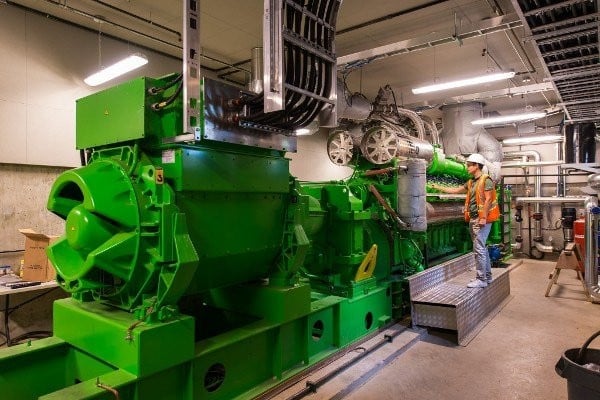UBC first Canadian university to produce clean heat and electricity from biofuel

In September (2012), the University of British Columbia (UBC) officially opened a $34-million clean energy facility, making it Canada’s first university – and one of a few institutions worldwide – to produce both clean heat and electricity for its campus from renewable biomass.
UBC’s Bioenergy Research and Demonstration Facility (BRDF) will generate enough clean electricity to power 1,500 homes and will supply up to 12 percent of UBC’s heat requirements. It will reduce the institution’s natural gas consumption by 12 percent and campus greenhouse gas emissions by nine percent (5,000 tonnes). University researchers, students and partners will use the first-of-its-kind facility to research, develop and evaluate bioenergy and other clean energies, processes and technologies.
The facility, which runs on tree trimmings and wood chips diverted from local landfills, is a partnership with Nexterra Systems Corporation and GE. It is the first commercial demonstration of a new application that combines Nexterra’s gasification and syngas cleaning technologies with GE’s Jenbacher engines.
“This exciting facility targets a major challenge facing society – the need for new, clean energy solutions that work at a community scale,” said UBC President Stephen Toope.
“With the successful start-up of our ecomagination-qualified GE Jenbacher gas engine at UBC, Nexterra is well on the road to delivering a renewable biomass combined heat-and-power solution that meets the demanding real-world reliability requirements of district energy providers and distributed power producers worldwide,” added Roger George, general manager, North America, GE Gas Engines.




